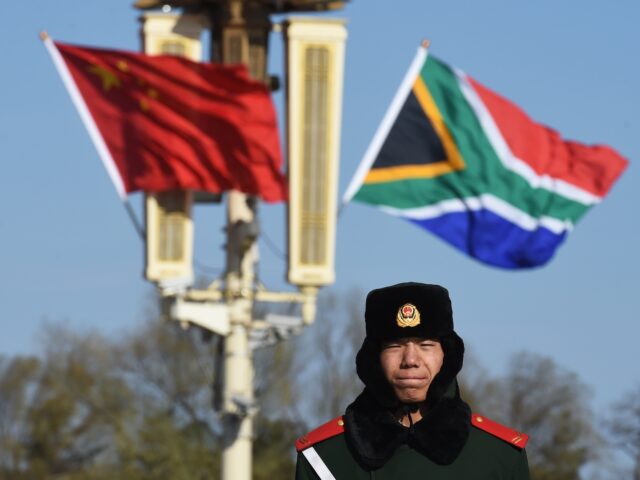South African Police Minister Bheki Cele and a group of his senior officials visited China last week for five days of discussions and training with Chinese police officials. Their schedule included talks about security preparations for the August BRICS summit to be held in Johannesburg, South Africa, and security for projects under China’s Belt and Road Initiative (BRI).
The South African government described Cele’s trip as “successful” and a “fruitful engagement” between the police forces of the two countries.
“While we share a rich history with China and have had several cooperations with our law enforcements over the years, we are encouraged by the new avenues being explored to boost South African techniques in law enforcement with our Chinese counterparts,” Cele said upon returning to South Africa.
“The first price for both our countries is a revived policing partnership that will translate to the safety of citizens and the improvement of policing through technology, specialized skills and modernized South African police service that is people oriented,” he said.
The South African delegation visited police stations in the major Chinese cities of Beijing, Shanghai, and Shenzhen, and received “combat and educational training” at China’s highest-ranking police academy, the China People’s Public Security University in Beijing.

Chinese State Councilor and Minister of Public Security Wang Xiaohong meets South African Police Minister Bheki Cele in Beijing, capital of China, June 8, 2023. (Photo by Yue Yuewei/Xinhua via Getty)
Chinese police have demonstrated considerable brutality toward protesters, and routinely arrest dissidents for purely political reasons, throwing prisoners into an opaque “justice system” that is a grotesque caricature of the court system in free nations.
South Africa’s police ministry assured Voice of America News (VOA) on Thursday that Cele’s delegation was purely interested in “smart policing” and “cooperation with Chinese law enforcement to assist in technological advancement.”
The ministry said Cele met with Chinese Minister of Public Security Wang Xiaohong to establish “a formal and rigorous policing exchange program of personnel capabilities and training between the two countries.”
VOA noted China has been developing extensive police cooperation with several African countries, training over 2,000 African law enforcement personnel at Chinese academies over the past five years and supplying African forces with equipment.
“China’s expanding public security frontlines and tactics in Africa have triggered debates about how much sovereignty African countries surrender by offering Chinese security agencies a highly permissive environment to craft a growing mix of security mechanisms within African countries,” the Africa Center for Strategic Studies (ACSS) said in a report published last month.
The report cited instances of African police forces assisting Chinese intelligence in activities such as extraditing Taiwanese nationals to face Chinese courts and interrogating Chinese dissidents.
ACSS observed that Chinese police training “entails political and ideological principles based on the Chinese Communist Party’s model of absolute party control of security forces and the state,” which is a dramatic change from the models of government and policing enshrined in most African constitutions.
One of the key concepts China is infusing into African policing is weiwen, a term that means “stability maintenance.” In practice, weiwen means protecting the stability of government – and the power of the permanent ruling Party – at all costs.
“The wholesale application of this concept in Africa is problematic, given the resurgence of dominant one-party states and authoritarian practices and the potential to use weiwen as justification for the perpetual retention of power. With weiwen, human rights, civil liberties, and public accountability are secondary,” the report noted.
ACSS said that “around 40 African countries have some kind of agreement with Chinese public security agencies,” and 13 now have extradition treaties with China. No African nation had an extradition treaty with China as recently as 2018.

COMMENTS
Please let us know if you're having issues with commenting.